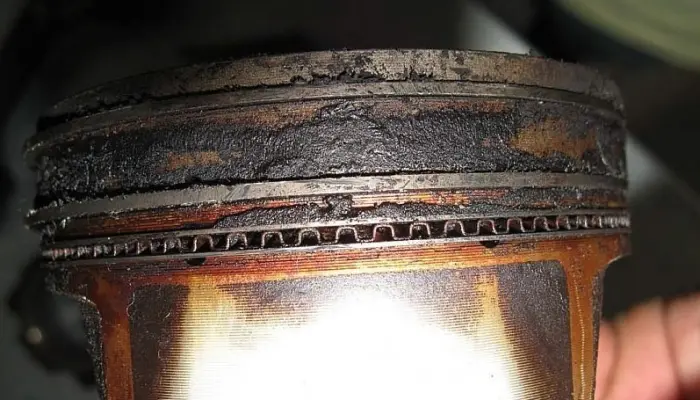Piston rings are movable sealing elements that are placed in grooves on the piston and serve to seal the combustion chamber from the engine's crankcase. Their main functions are to prevent gas breakthrough into the crankcase and oil into the combustion chamber. To perform these important functions, the rings tightly adhere to the cylinder walls due to their elasticity and gas pressure.
Rings play a key role in the operation of an internal combustion engine. Their technical condition directly affects power, fuel consumption, and exhaust gas toxicity.
Causes of Piston Ring Coking
The main cause of piston ring coking is the deposition of solid particles of incomplete combustion products, known as carbon buildup, on their surface. Carbon buildup occurs when fuel burns in conditions of insufficient air and also due to various malfunctions in the ignition and fuel supply systems.
Other possible causes include the use of low-quality fuel with high sulfur content, oil entering the combustion chamber, operating the engine on overheated oil, and misadjustments of engine systems.
Signs of Coked Rings
The presence of coked rings can be indicated by several indirect signs:
- Increased oil consumption due to its breakthrough into the combustion chamber
- Smoky exhaust, especially during acceleration
- Loss of engine power and responsiveness
- Increased fuel consumption
- Problems with starting the engine
- Spark plug fouling with carbon deposits
- Unusual knocking in the engine
Upon visual inspection, the surface of coked rings shows a dark coating and lacks a clean metallic sheen.
Consequences of Coking
Long-term operation of an engine with coked rings leads to negative consequences:
- Noticeable reduction in engine power and dynamics
- Accelerated wear of the cylinder-piston group components
- Increased fuel and motor oil consumption
- Oil contamination with combustion products
- Possible engine failure in case of severe coking
Therefore, it is important to take immediate action to clean or replace coked rings at the first signs to avoid costly engine repairs.
Methods for Cleaning Coked Rings
For slightly coked rings, special cleaning solvents are used, in which the rings are soaked for several hours. Then they are wiped and reinstalled.
In cases of severe deposits, the rings need to be removed and cleaned mechanically using metal brushes, files, and sandpaper. This is a meticulous job that requires care to avoid damaging the working surfaces.
Sometimes it is easier and cheaper to replace severely coked rings with new ones, rather than spending a lot of time on their cleaning.
Prevention of Coking
To prevent the problem of piston ring coking, it is recommended to:
- Use high-quality fuel
- Change oil and filters promptly
- Check and adjust the ignition system
- Avoid engine overheating
- Use effective fuel additives
- Regularly clean the combustion chamber from carbon deposits
Following these simple rules will significantly extend the life of piston rings and avoid costly engine repairs.
